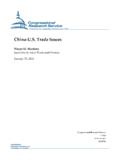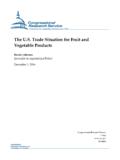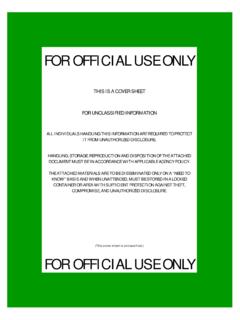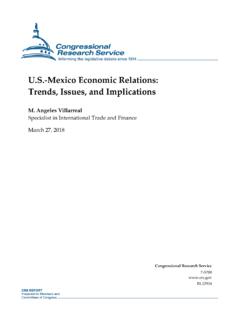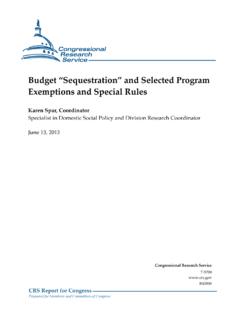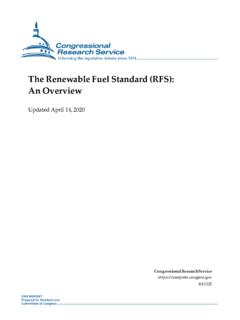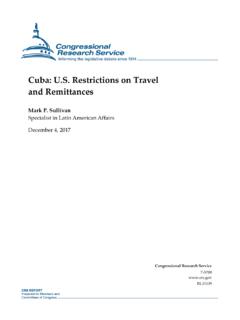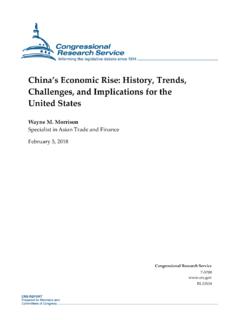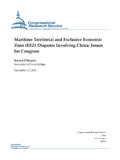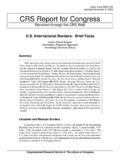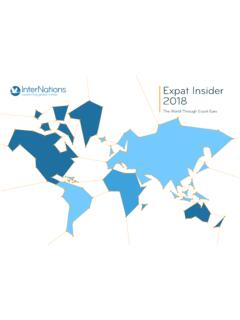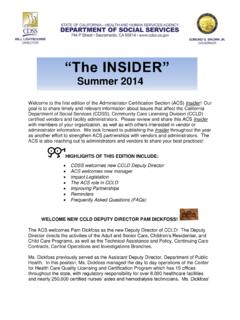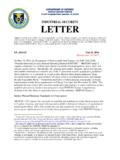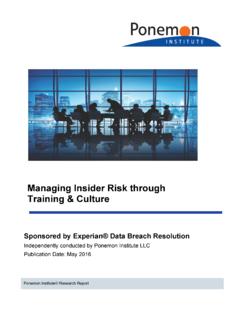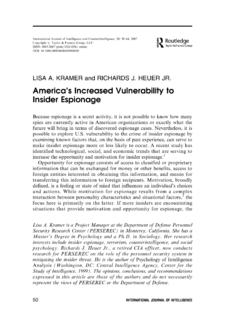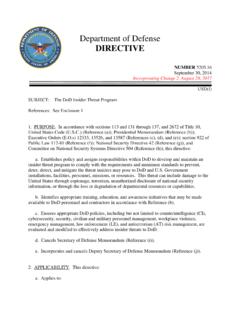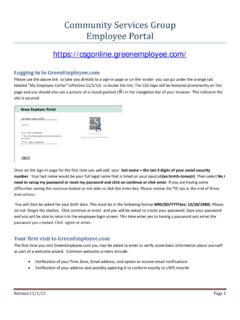Transcription of Federal Securities Law: Insider Trading
1 Federal Securities Law: Insider Trading Michael V. Seitzinger Legislative Attorney March 1, 2016 Congressional Research Service 7-5700 RS21127 Federal Securities Law: Insider Trading Congressional Research Service Summary Insider Trading in Securities may occur when a person in possession of material nonpublic information about a company trades in the company s Securities and makes a profit or avoids a loss. Certain Federal statutes have provisions which have been used to prosecute Insider Trading violations.
2 For example, Section 16 of the Securities Exchange Act of 1934 requires the disgorgement of short-swing profits by named insiders directors, officers, and 10% shareholders. The 1934 Act s general antifraud provision, Section 10(b), is frequently used in the prosecution of Insider traders. Although the statute does not specifically mention Insider Trading but, instead, forbids the use of manipulative or deceptive means in buying or selling Securities , case law has made clear that Insider Trading is the type of fraud that is prohibited by Section 10(b).
3 Securities and Exchange Commission rules issued to implement Section 10(b), particularly Rule 10b-5, have also been frequently invoked in Insider Trading prosecutions. In the Insider Trading Sanctions Act of 1984 and the Insider Trading and Securities Fraud Enforcement Act of 1988, Congress enacted legislation imposing up to treble damages (and in some cases the greater of $1 million or up to treble damages) on a person found guilty of Insider Trading . More recently, the Stop Trading on Congressional Knowledge (STOCK) Act of 2012 explicitly stated that there is no exemption from the Insider Trading prohibitions for Members of Congress, congressional employees, or any Federal officials.
4 As stated above, SEC Rule 10b-5 is the most frequently used SEC rule in lawsuits that charge violations of Insider Trading prohibitions. However, other SEC rules, some of which specifically target Insider Trading , are also important. There are numerous cases that have used Section 10(b) and Rule 10b-5 to prosecute Insider Trading violations. The decision by the Court of Appeals for the Second Circuit (Second Circuit) in United States v. Newman has brought increased attention to the issue of Insider Trading .
5 In its December 10, 2014, decision, the Second Circuit overturned two high-profile convictions for Insider Trading . The court did not simply vacate the convictions; it remanded for the district court to dismiss the indictment with prejudice, thereby forbidding the government from refiling the case. The Second Circuit held that the evidence against two stock fund analysts could not sustain a guilty verdict because the government did not adequately show that the alleged insiders received personal benefits for providing information to the stock fund analysts and that the government did not present evidence that the defendants knew that they were Trading on inside information obtained from insiders who were violating their fiduciary duties.
6 The Attorney for the Southern District of New York asked the Second Circuit to reconsider the ruling, but on April 3, 2015, the Second Circuit denied the Attorney s request. On July 30, 2015, the Department of Justice asked the Supreme Court to review the Second Circuit decision. On October 5, 2015, the Supreme Court declined to hear the Newman Insider Trading appeal. On July 6, 2015, a case decided by the Court of Appeals for the Ninth Circuit may have further complicated Insider Trading law.
7 The case, Salman v. United States, affirmed a lower court decision finding a breach of fiduciary duty and creation of a personal benefit in a family Insider Trading situation, holding that the gift of inside information was sufficient to create liability for Insider Trading . On January 19, 2016, the Supreme Court granted certiorari in the Salman case. Several bills, including 1173, 1625, and S. 702, have been introduced in the 114th Congress to attempt to prevent the type of Securities Trading allowed by the Newman decision.
8 This report will be updated as warranted. Federal Securities Law: Insider Trading Congressional Research Service Contents Overview of Federal Statutes Related to Insider Trading .. 1 Securities Exchange Act of 1934 .. 1 Insider Trading Sanctions Act of 1984 .. 2 Insider Trading and Securities Fraud Enforcement Act of 1988 .. 2 Stop Trading on Congressional Knowledge (STOCK) Act of 2012 .. 3 Examples of Penalties for Insider Trading .. 3 Selected Regulations .. 3 Selected Decisions That Have Used Section 10(b) and Rule 10b-5 to Prosecute Insider Trading Violations.
9 4 United States v. Newman .. 8 United States v. Salman .. 11 Congressional Interest in the Newman Decision .. 13 Contacts Author Contact Information .. 14 Federal Securities Law: Insider Trading Congressional Research Service 1 Overview of Federal Statutes Related to Insider Trading Insider Trading in Securities may occur when a person in possession of material nonpublic information about a company trades in the company s Securities and makes a profit or avoids a loss. Federal statutes have provisions which either specifically forbid Insider Trading or have been interpreted by courts to prohibit Insider Trading .
10 Securities Exchange Act of 1934 One provision in the Securities Exchange Act of 19341 is specifically designed to discourage insiders in the corporation from taking advantage of their inside information in the Trading of the corporation s Securities . Section 16 of the 1934 Act2 places sanctions on insiders who use inside information in making short-swing profits. For purposes of this provision, an Insider is defined as any person who is directly or indirectly the beneficial owner of more than 10 percent of any class of any equity security.
